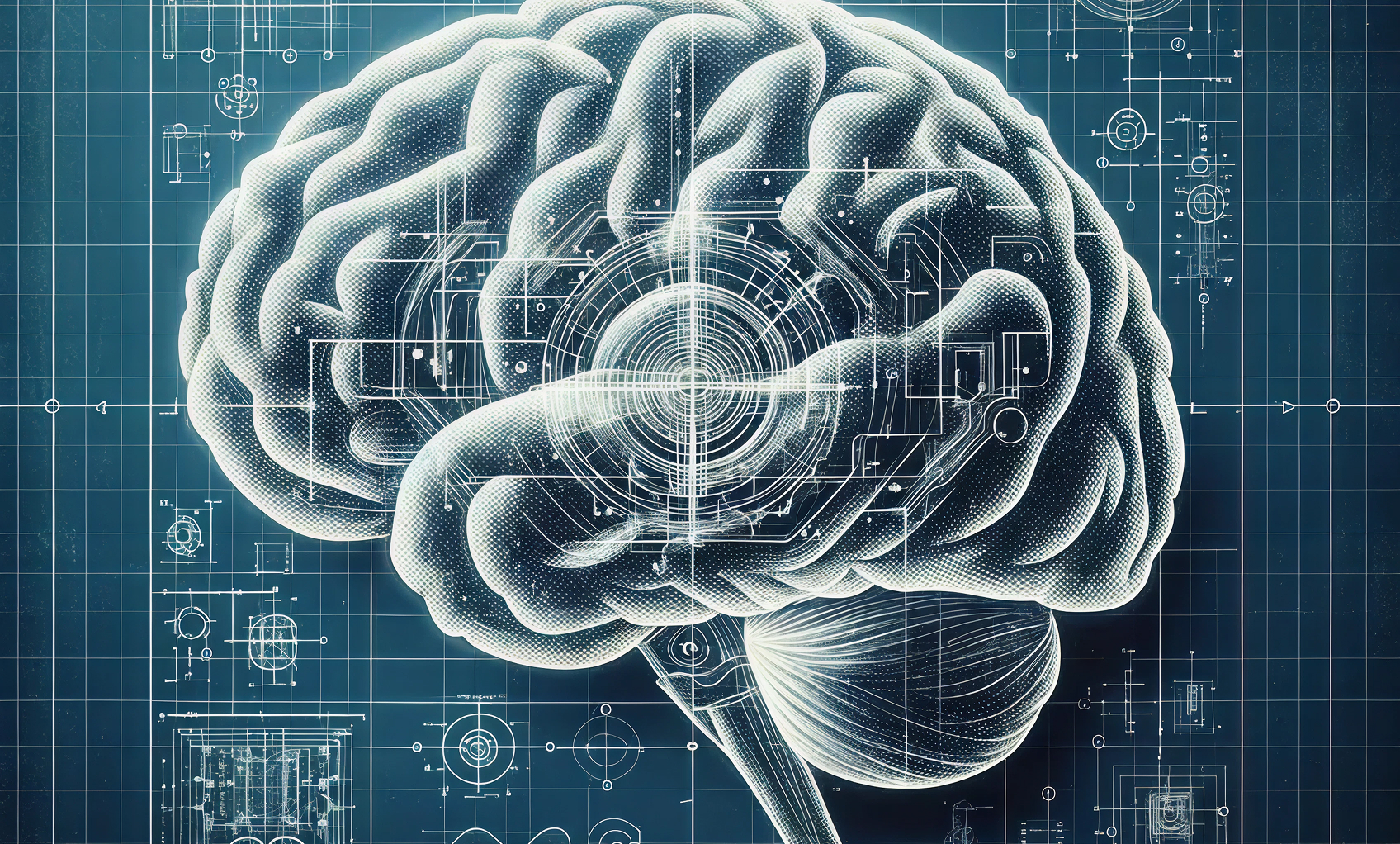
Introduction: what is indicated when the brain takes part in future prediction?
Have you ever felt like you knew what was going to happen, even though you had never been in that situation? This remarkable ability is not magic; it's a fascinating function of your brain known as prediction.
Predictive processes allow your brain to forecast what will happen next on the basis of previous experience and learned patterns. But how does your brain handle entirely new experiences?
This guide explores:
- The science behind predictive neurons
- Why this ability matters for mental health
- How to improve it effectively
- And how it enhances your quality of life
𝗪𝗵𝗮𝘁 𝗮𝗿𝗲 𝗽𝗿𝗲𝗱𝗶𝗰𝘁𝗶𝘃𝗲 𝗻𝗲𝘂𝗿𝗼𝗻𝘀, 𝗮𝗻𝗱 𝘄𝗵𝗮𝘁 𝗺𝗲𝗰𝗵𝗮𝗻𝗶𝘀𝗺𝘀 𝘂𝗻𝗱𝗲𝗿𝗽𝗶𝗻 𝘁𝗵𝗲𝗶𝗿 𝗳𝘂𝗻𝗰𝘁𝗶𝗼𝗻𝗮𝗹𝗶𝘁𝘆?
Predictive neurons are brain cells that forecast future outcomes based on past experiences and patterns. They act as your brain’s internal prediction system.
They function through:
- Pattern recognition: Detect recurring themes in sensory inputs and memories
- Learning from experience: Each experience fine-tunes the brain’s internal models
- Instantaneous responses: Enable rapid and accurate reactions to stimuli
Key brain areas involved include the hippocampus, prefrontal cortex, and cerebellum, responsible for memory, decision-making, and coordination.

𝗛𝗼𝘄 𝗱𝗼𝗲𝘀 𝘆𝗼𝘂𝗿 𝗯𝗿𝗮𝗶𝗻 𝗵𝗮𝗻𝗱𝗹𝗲 𝘂𝗻𝗸𝗻𝗼𝘄𝗻 𝗼𝗿 𝗻𝗲𝘄 𝘀𝗶𝘁𝘂𝗮𝘁𝗶𝗼𝗻𝘀?
In new or unfamiliar situations, your brain uses:
- Similarity analysis: Compares the new experience to familiar ones
- Probabilistic thinking: Estimates likely outcomes based on available data
- Dynamic hypothesis testing: Adjusts predictions in real time using feedback
This mental flexibility is key to adaptability and resilience.
𝗪𝗵𝘆 𝗶𝘀 𝘁𝗵𝗲 𝗽𝗿𝗲𝗱𝗶𝗰𝘁𝗶𝘃𝗲 𝗳𝘂𝗻𝗰𝘁𝗶𝗼𝗻 𝗼𝗳 𝘆𝗼𝘂𝗿 𝗯𝗿𝗮𝗶𝗻 𝗰𝗿𝘂𝗰𝗶𝗮𝗹 𝘁𝗼 𝘆𝗼𝘂𝗿 𝗵𝗲𝗮𝗹𝘁𝗵?
Accurate prediction improves:
- Emotional regulation: Less surprise means more emotional control
- Anxiety reduction: Reduced uncertainty lowers stress
- Decision-making: Faster, more confident choices
- Resource efficiency: Saves mental energy by anticipating needs
Poor prediction can cause increased stress, indecision, and even cognitive decline.
𝗥𝗲𝗮𝗹-𝗹𝗶𝗳𝗲 𝗲𝘅𝗮𝗺𝗽𝗹𝗲𝘀: 𝘆𝗼𝘂𝗿 𝗯𝗿𝗮𝗶𝗻'𝘀 𝗽𝗿𝗲𝗱𝗶𝗰𝘁𝗶𝗼𝗻𝘀 𝗶𝗻 𝗲𝘃𝗲𝗿𝘆𝗱𝗮𝘆 𝗹𝗶𝗳𝗲
Examples of prediction in daily life:
- Driving: You anticipate other drivers’ moves
- Conversation: You predict and prepare responses
- Sports: Athletes forecast plays and movements
- Social interaction: You read emotions and cues ahead of time
Though these feel automatic, they rely on fast, complex brain activity.
𝗧𝗵𝗲 𝗲𝗻𝗵𝗮𝗻𝗰𝗲𝗺𝗲𝗻𝘁 𝗼𝗳 𝗯𝗿𝗮𝗶𝗻 𝗽𝗿𝗲𝗱𝗶𝗰𝘁𝗶𝘃𝗲 𝗳𝘂𝗻𝗰𝘁𝗶𝗼𝗻𝘀 𝘁𝗵𝗿𝗼𝘂𝗴𝗵 𝗻𝗲𝘂𝗿𝗼𝗹𝗼𝗴𝗶𝗰𝗮𝗹 𝗼𝗽𝘁𝗶𝗺𝗶𝘇𝗮𝘁𝗶𝗼𝗻 𝘁𝗲𝗰𝗵𝗻𝗶𝗾𝘂𝗲𝘀 (𝗡𝗲𝘂𝗿𝗼𝗟𝗮𝗯 𝗶𝗻𝘀𝗶𝗴𝗵𝘁)
NeuroLab methods improve prediction via:
- Enhanced neural connections through light/frequency stimulation
- Faster cognition for quicker reaction and decision-making
- Greater neuroplasticity — better adaptation and learning
These techniques are non-invasive, safe, and supported by research.

𝗣𝗿𝗮𝗰𝘁𝗶𝗰𝗮𝗹 𝘄𝗮𝘆𝘀 𝘁𝗼 𝗶𝗺𝗽𝗿𝗼𝘃𝗲 𝘆𝗼𝘂𝗿 𝗯𝗿𝗮𝗶𝗻'𝘀 𝗽𝗿𝗲𝗱𝗶𝗰𝘁𝗶𝘃𝗲 𝗰𝗮𝗽𝗮𝗯𝗶𝗹𝗶𝘁𝘆
Try these evidence-based methods:
- Mindfulness/meditation: Strengthens attention and awareness
- Cognitive training games: Boost memory and logic
- Exercise: Supports long-term brain health
- Sleep: Essential for memory and prediction
- Novel experiences: Keep the brain learning and sharp
Daily consistency in these habits builds prediction strength.
𝗖𝗮𝗻 𝗯𝗲𝘁𝘁𝗲𝗿 𝗯𝗿𝗮𝗶𝗻 𝗽𝗿𝗲𝗱𝗶𝗰𝘁𝗶𝗼𝗻𝘀 𝘀𝗮𝗳𝗲𝗴𝘂𝗮𝗿𝗱 𝗮𝗴𝗮𝗶𝗻𝘀𝘁 𝗰𝗼𝗴𝗻𝗶𝘁𝗶𝘃𝗲 𝗱𝗲𝗰𝗹𝗶𝗻𝗲 𝗮𝗻𝗱 𝗱𝗲𝗺𝗲𝗻𝘁𝗶𝗮?
Yes. Research shows:
- Early detection: Enhanced prediction helps spot early cognitive issues
- Stronger reserves: More brain flexibility defends against decline
- Delayed dementia onset: Boosting predictive neurons helps long-term health
Building this capacity now protects your future cognitive resilience.
𝗤&𝗔: 𝗳𝗿𝗲𝗾𝘂𝗲𝗻𝘁𝗹𝘆 𝗮𝘀𝗸𝗲𝗱 𝗾𝘂𝗲𝘀𝘁𝗶𝗼𝗻𝘀 𝗿𝗲𝗴𝗮𝗿𝗱𝗶𝗻𝗴 𝗯𝗿𝗮𝗶𝗻 𝗽𝗿𝗲𝗱𝗶𝗰𝘁𝗶𝗼𝗻𝘀 𝗮𝗻𝗱 𝗽𝗿𝗲𝗱𝗶𝗰𝘁𝗶𝘃𝗲 𝗻𝗲𝘂𝗿𝗼𝗻𝘀
Q: Can we improve predictive capabilities regardless of age?
A: Yes. With training and healthy habits, it’s possible at any age.
Q: What are signs of poor prediction?
A: Difficulty adapting, frequent confusion, bad decisions, anxiety.
Q: Is decline inevitable with age?
A: Not necessarily. Predictive power can be maintained and improved.
Q: Are optimization treatments safe?
A: Yes. NeuroLab therapies are safe and have minimal side effects.
𝗖𝗼𝗻𝗰𝗹𝘂𝘀𝗶𝗼𝗻: 𝘀𝘂𝗺𝗺𝗮𝗿𝘆 𝗮𝗻𝗱 𝗮𝗰𝘁𝗶𝗼𝗻𝗮𝗯𝗹𝗲 𝗶𝗻𝘀𝗶𝗴𝗵𝘁𝘀
Your brain’s ability to predict is central to your mental strength, emotional balance, and cognitive longevity.
Support it daily with:
- Mental training
- Physical movement
- Mindful practice
- Quality rest
- Neurological tools when needed
Improving prediction isn’t optional—it’s essential. Start now, and empower your brain to thrive through life’s uncertainties.


